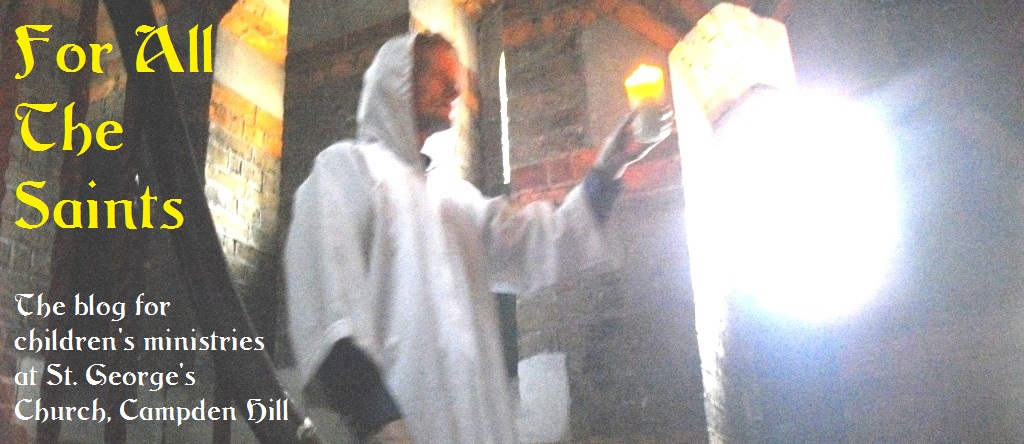The children gather around the altar, with the Sunday School teachers, holding examples of their work from the past year.
President: Almighty Father, you came among us as a small
child. As a child, you spoke the wisdom
of God in the temple. We bring you the
work these children have done this year, and we ask that it may bring them to
know and to love you.
Making the sign of the
cross over the work.
Now bless this work, we pray you. Keep safe the little ones who have created
it. Make it an offering in your
church. Show your favour upon these
children as they complete another year, and bring them safely again to us in
the new season.
People: Amen.
The President invites
all children who are moving from the Sunday School to the Youth Group to come
forward to the centre.
President: Saint Paul wrote, “When I was a child, I spoke as
a child, I understood as a child, I thought as a child: but when I became an
adult, I put away childish things.” You
stand on the line between childhood and adulthood. As you move from the Sunday School to the
Youth Group, are you prepared to come to know Christ in new ways?
Children: With the help of God, I am.
President: Are you prepared to take on more responsibility
for your own life and for your own faith?
Children: With the help of God, I am.
President: Will you continue to pray, to serve God in all
people, and to follow Christ wherever he may lead you in your adolescence and
adulthood?
Children: With the help of God, I will.
President: Almighty God, be with these young people as they
begin to put away childish things. Let
their faith be a staff to lean upon, a light in the darkness, a mantle about
their shoulders. Give them wisdom and
compassion as they grows into from childhood to manhood and womanhood.
People: Amen!
The President
addresses the Sunday School teachers.
President: Jesus said, “whoever welcomes one child in my name
welcomes me.” Lord, we ask your blessing
upon these teachers, who have welcomed the children into your house. We thank you for their faith, their love, and
their wisdom. Bless them and keep them
close to you, that they may be faithful ministers of your word and that their
own faith may grow as they share your love with others.
People: Amen.
Continue with the
blessing and dismissal
